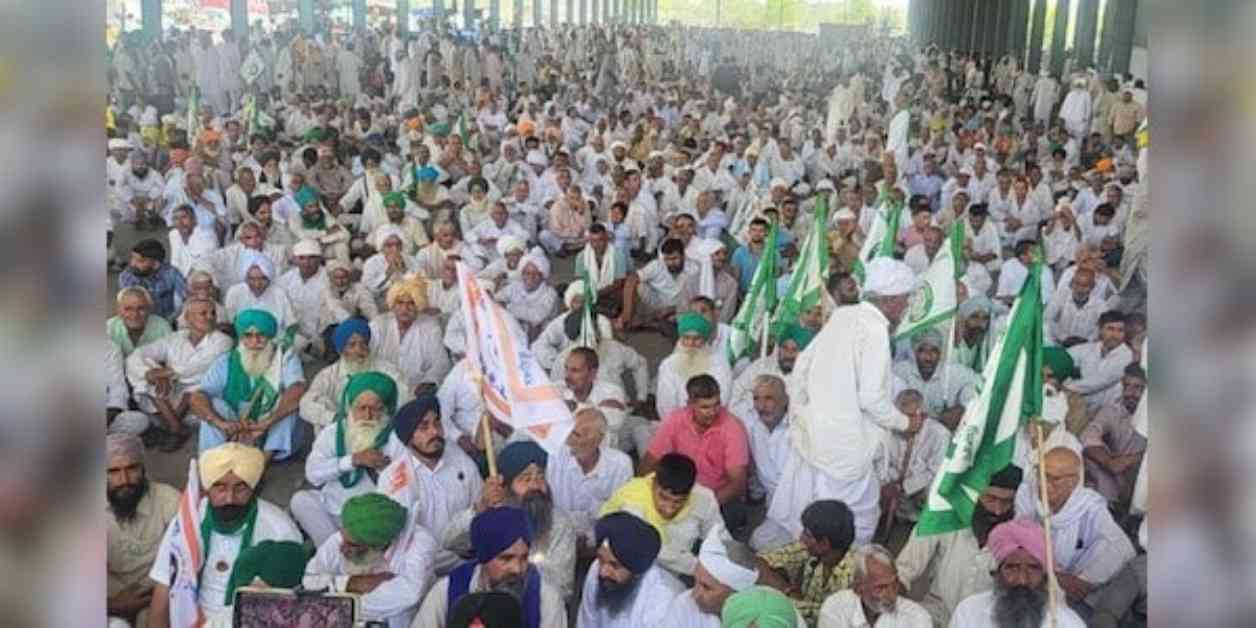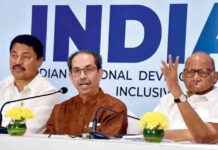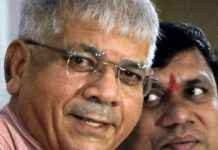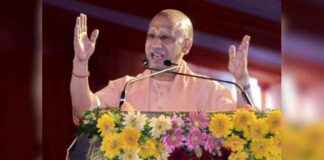Farmers’ Stand at Kisan Mahapanchayat: A Neutral Stance on Election Support
Amidst the ongoing political turmoil and heated debates surrounding the upcoming elections, a significant development took place at the Kisan Mahapanchayat held in Uchana, Haryana’s Jind district. Unlike the usual endorsements and alliances that often characterize such gatherings, the farmers present at the Mahapanchayat made a collective decision to maintain a neutral stance when it comes to supporting or opposing any political party in the upcoming elections. This stance was communicated by prominent farmer leaders like Jagjit Singh Dallewal, Shravan Singh Pandher, and Abhimanyu Kohad, who emphasized the primary focus on strengthening the farmers’ movement rather than engaging in electoral politics.
The event, organized under the aegis of the Bharatiya Kisan Naujawan Union, saw a massive turnout of farmers from various states, including Haryana and Punjab. Dallewal, while shedding light on the decision taken at the Mahapanchayat, reiterated the farmers’ commitment to the movement’s objectives. He stated, “Our aim is to strengthen the movement. We will neither help nor oppose any political party in the elections. Instead, we will focus on raising awareness about the government’s failures and decisions that adversely impact the farming community.” This resolute stance underscores the farmers’ unwavering dedication to their cause and their determination to bring about meaningful change through collective action.
Looking ahead, Dallewal announced that the next Mahapanchayat is scheduled to take place on September 22 in Pipli, Kurukshetra. He emphasized that the demands being raised by the farmers extend beyond the borders of Punjab and Haryana, resonating with agricultural communities across the country. The Mahapanchayats, he emphasized, are not confined to specific regions but are being organized nationwide to unite farmers and amplify their voices in the ongoing struggle for their rights and dignity.
However, the path leading up to the Kisan Mahapanchayat was fraught with challenges, as Dallewal highlighted the government’s attempts to thwart the farmers’ participation in the event. He condemned the placement of cement barriers and the prohibition on providing food to the farmers, labeling these actions as shameful and unacceptable. These obstacles only served to strengthen the farmers’ resolve and underscore the importance of their united front in the face of adversity.
Adding to the discourse, farmer leader Abhimanyu Kohad reiterated the farmers’ non-partisan stance on electoral politics. While refraining from endorsing any specific political party, he urged voters to remember the hardships and injustices faced by farmers and laborers over the past decade. This call to action serves as a reminder of the enduring challenges confronting the agricultural community and the urgent need for systemic reforms to address their grievances.
Challenges and Resilience: Navigating the Political Landscape
The decision to maintain a neutral stance on election support reflects the farmers’ strategic approach to navigating the complex political landscape while staying true to their core objectives. By eschewing partisan politics, the farmers are sending a clear message that their movement transcends electoral dynamics and is rooted in broader issues of social justice and economic empowerment. This principled stand not only demonstrates the farmers’ resilience in the face of political pressures but also underscores their commitment to effecting lasting change through grassroots mobilization.
The farmers’ movement, spearheaded by leaders like Dallewal and Kohad, has emerged as a potent force challenging the status quo and demanding accountability from those in power. Through their sustained protests, rallies, and Mahapanchayats, the farmers have succeeded in galvanizing public support and drawing attention to the injustices plaguing the agricultural sector. Their unwavering determination and solidarity have inspired a wave of activism that transcends regional boundaries and unites farmers from diverse backgrounds in a common struggle for justice and equity.
As the farmers gear up for the upcoming Mahapanchayat in Pipli, Kurukshetra, they are poised to amplify their demands and mobilize support for their cause on a national scale. The convergence of farmers from across the country at these gatherings underscores the inclusive nature of the movement and its potential to bring about transformative change in the agricultural sector. By fostering solidarity and collective action, the farmers are laying the groundwork for a more equitable and sustainable future for themselves and future generations.
Unity in Diversity: The Power of Collective Action
The farmers’ decision to maintain a neutral stance on election support is emblematic of the diversity and unity that define their movement. Despite hailing from different regions and backgrounds, the farmers have come together under a common banner to advocate for their rights and resist oppressive policies that threaten their livelihoods. This spirit of unity in diversity has been instrumental in sustaining the momentum of the farmers’ movement and garnering widespread public support for their cause.
At its core, the farmers’ movement is a testament to the power of collective action and grassroots organizing in effecting social change. By standing together in solidarity, the farmers have defied attempts to divide and weaken their ranks, emerging as a formidable force that cannot be ignored. Their resilience in the face of adversity and their unwavering commitment to their cause serve as a source of inspiration for all those fighting for justice and equality in society.
In conclusion, the farmers’ decision to maintain a neutral stance on election support highlights their unwavering dedication to their movement’s objectives and their refusal to be swayed by partisan politics. By prioritizing unity, solidarity, and grassroots mobilization, the farmers are paving the way for a more equitable and sustainable future for themselves and future generations. As they continue to organize and mobilize, the farmers are poised to shape the course of agricultural policy and advocate for a more just and inclusive society for all.




















